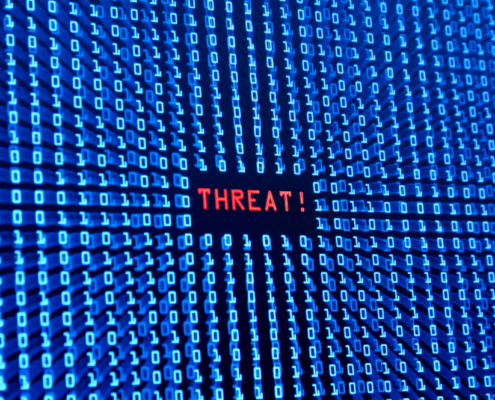 https://hilliardos.com/wp-content/uploads/2025/06/Firewall-Security.png 665 1000 sterlingh@mmbo.com /wp-content/uploads/2023/02/Hilliard-Logo-Color.png sterlingh@mmbo.com2025-07-04 07:02:192026-02-19 16:59:32Implementing Firewall Security to Safeguard Your Network
https://hilliardos.com/wp-content/uploads/2025/06/Firewall-Security.png 665 1000 sterlingh@mmbo.com /wp-content/uploads/2023/02/Hilliard-Logo-Color.png sterlingh@mmbo.com2025-07-04 07:02:192026-02-19 16:59:32Implementing Firewall Security to Safeguard Your NetworkThe Importance of Updated Firewalls:
A Guide for Your Business
Protecting your business from cyberthreats is crucial in today’s digital landscape. One key component of a robust cybersecurity strategy is a firewall. In this blog, we’ll explore the importance of regular firewall updates and the factors to consider when determining the frequency of these updates.
Understanding Firewalls and Their Role in Cybersecurity
A firewall serves as a vital cyber defense mechanism, acting as a robust barricade that carefully filters both incoming and outgoing network traffic. Its primary role is to enforce a set of security rules, allowing only legitimate and authorized information to pass through while blocking potentially harmful or malicious content.
Why You Should Be Regularly Updating Your Firewall
Just like any software, firewalls require consistent maintenance. It’s essential to keep your firewall settings up to date by performing periodic updates. This ensures that your firewall remains effective in detecting and combating new and emerging threats in the constantly evolving cyber landscape.
-
Patch Loopholes and Vulnerabilities
Cyber thieves continuously devise new methods to breach your defenses. Unfortunately, outdated firewalls may have loopholes that attackers exploit. Regularly updating your network firewall closes these openings, patching discovered vulnerabilities, and empowering your defenses to counter emerging exploits, bolstering your overall cybersecurity.
-
Close Your Network From Cyber Threats
A successful cyberattack can lead to system downtime, which can be a costly affair for businesses.
-
Firewall Upgrades Enhance Your Operations
Updated firewalls make sure that they are operating at their best, allowing for smoother functionality, easier automation, and simpler administration. Updated firewalls support the latest security protocols and access permissions (IAM), which are essential for safeguarding your network against modern threats. Moreover, regular updates optimize network performance, providing improved visibility and control over network traffic. By staying current with firewall updates, your business can better protect sensitive data and maintain a robust cybersecurity posture, safeguarding against potential breaches and unauthorized access.
Key Factors to Consider for Firewall Update Frequency
Various factors can influence whether you need to upgrade your firewall and network protection on a daily, weekly, or monthly basis, including:
Industry Standards and Best Practices
Adhering to industry standards and best practices is crucial for maintaining a robust and compliant security system. As technology advances rapidly, updated firewalls have become almost continuous to keep up with emerging threats and security patches. Staying current with these standards helps ensure that your firewall remains effective in countering the latest cyberthreats and meeting regulatory requirements.
Business-Specific Security Needs and Risk Assessment
Every business is unique, and so are its security needs. Factors like the nature of your business, the sensitivity of the data you handle, and the specific types of threats you are susceptible to all influence the frequency of firewall updates. A comprehensive risk assessment helps determine the level of protection required, guiding how often updates should be implemented to address potential vulnerabilities.
Balancing Security and Business Continuity
While updated firewalls are essential for maintaining a secure network, it’s important that they don’t disrupt your business operations. Timing updates strategically and testing them in a controlled environment can help prevent unexpected issues that could negatively impact services or productivity. Striking the right balance ensures that security measures are in place without compromising business continuity.
Backup and Redundancy Measures
A robust backup and redundancy strategy is vital to ensure business continuity during a security threat or update process. In case of any unforeseen issues during a firewall update, having reliable backups and redundancy measures ensures that critical business functions can continue uninterrupted. This safeguard minimizes potential downtime and data loss, reinforcing the overall effectiveness of the firewall.
Regular Monitoring and Maintenance
Firewalls should be consistently monitored and maintained to stay aligned with the latest updates and security protocols. Regular checks help identify any anomalies or potential vulnerabilities that may arise over time. Timely maintenance ensures that the firewall’s performance remains optimal and is capable of dealing with new cyber threats effectively.
Periodic Security Audits and Penetration Testing
Conducting periodic security audits and penetration testing is crucial for evaluating the overall efficacy of your firewall settings. These assessments help identify potential weaknesses or gaps in your security measures. By simulating real-world attack scenarios, businesses can proactively address vulnerabilities, fine-tune their firewall configurations, and ensure a strong defense against potential cyberattacks.
Keep Your Firewall Updated With Managed Cybersecurity Solutions from Hilliard
Updating your firewall and keeping your network secure doesn’t need to be a hassle. Partnering with a reliable IT support provider like Hilliard ensures your network stays secure even against the most advanced threats. We provide personalized managed cybersecurity solutions that help you mitigate the threat of data breaches, loss, corruption, and more, so you can run your business with confidence.




